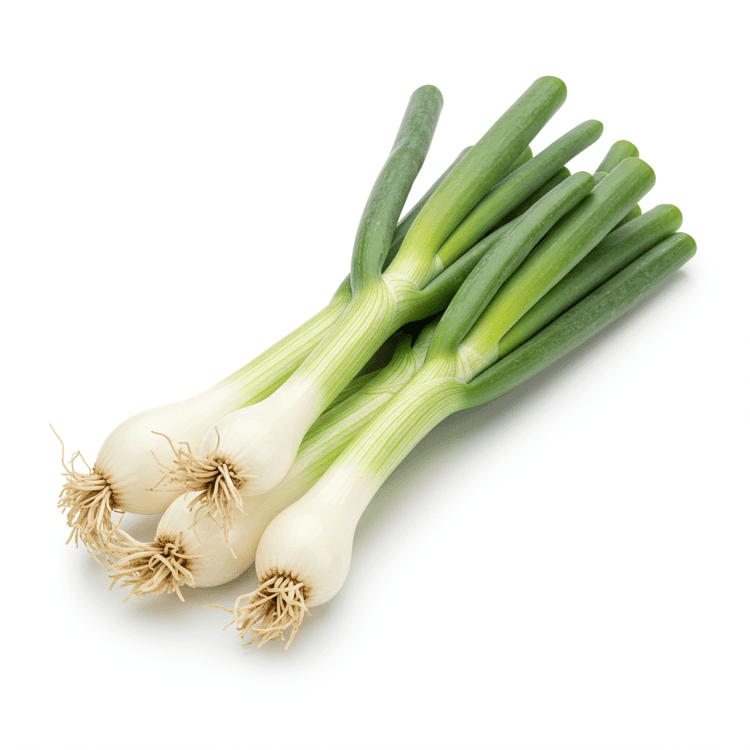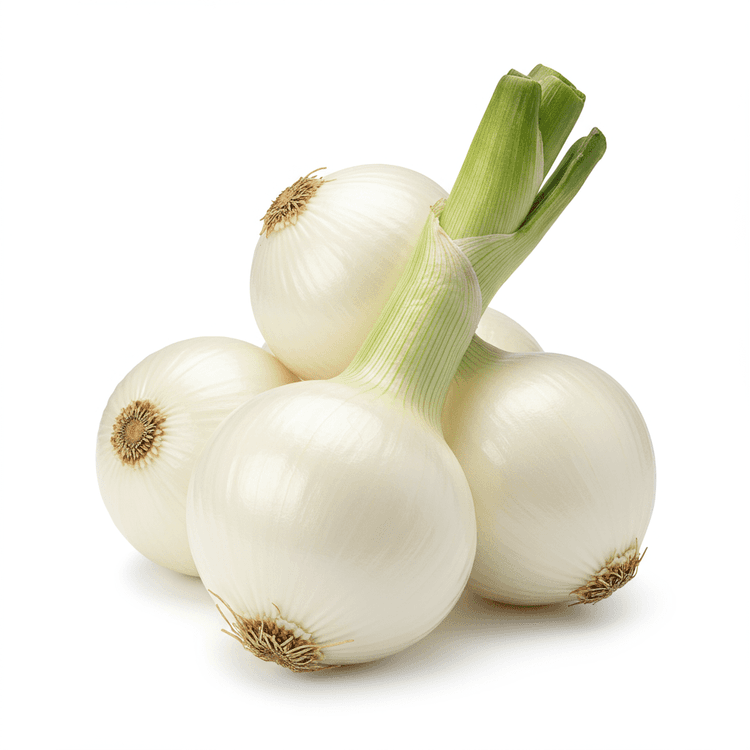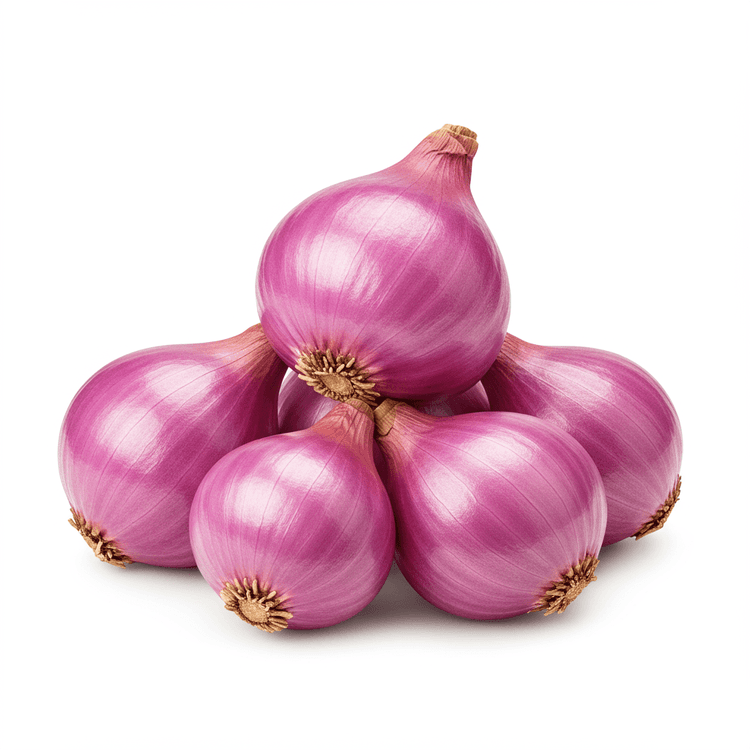
Spring Onion
Spring onions, also known as scallions, are a versatile vegetable characterized by their mild, fresh onion flavor. They feature a slender, green stalk topped with a small, immature white bulb. The entire plant, from the dark green leaves to the white base, is edible. Their crisp, slightly crunchy texture makes them a popular addition to both raw and cooked dishes. Spring onions offer a milder alternative to mature onions, providing a subtle oniony bite without being overpowering. They're a common ingredient in a variety of cuisines and are easy to incorporate into your everyday cooking, adding a vibrant color and a fresh, delicate flavor.
Common Uses
- Spring onions are often used raw in salads to add a mild onion flavor and a refreshing crunch. They can be thinly sliced and sprinkled over mixed greens, pasta salads, or grain bowls for a burst of freshness. - As a garnish, thinly sliced spring onions add visual appeal and a delicate oniony flavor to a wide range of dishes. Sprinkle them over soups, stews, stir-fries, tacos, or grilled meats to enhance their presentation and taste. - Spring onions are commonly used in stir-fries to add a subtle onion flavor and a vibrant green color. They can be added towards the end of cooking to retain their crisp texture and fresh taste. - Chopped spring onions can be incorporated into dips and sauces for added flavor and texture. Mix them into sour cream, guacamole, or salsa for a fresh, oniony kick. - Spring onions can be grilled or roasted alongside other vegetables to create a flavorful side dish. The grilling or roasting process softens their texture and brings out their natural sweetness. - Spring onions are frequently used in Asian cuisine, such as in noodle dishes, dumplings, and spring rolls. They add a characteristic onion flavor and a pop of color to these dishes.
Nutrition (per serving)
Nutrition (per serving)
Calories
32.0kcal (1.6%)
Protein
1.8g (3.66%)
Carbs
7.3g (2.67%)
Sugars
2.3g (4.66%)
Healthy Fat
0.1g
Unhealthy Fat
0.0g
% Daily Value based on a 2000 calorie diet
Nutrition (per serving)
Calories
32.0kcal (1.6%)
Protein
1.8g (3.66%)
Carbs
7.3g (2.67%)
Sugars
2.3g (4.66%)
Healthy Fat
0.1g
Unhealthy Fat
0.0g
% Daily Value based on a 2000 calorie diet
Health Benefits
- Excellent source of Vitamin K, vital for blood clotting and bone health.
- Rich in Vitamin C, an antioxidant that supports immune function and skin health.
- Contains antioxidants like quercetin, which may help reduce inflammation.
- Good source of dietary fiber, promoting healthy digestion and gut health.
- May help lower blood pressure and cholesterol levels due to its sulfur compounds.
Substitutes
Chefadora AI is here.
Experience smarter, stress-free cooking.
Storage Tips
Spring onions are best stored in the refrigerator to maintain their freshness and crispness. Wrap them loosely in a damp paper towel and place them in a plastic bag or airtight container in the crisper drawer. This helps prevent them from drying out. Avoid washing them before storing, as excess moisture can lead to spoilage. Stored properly, they can last for up to a week. You can also freeze spring onions; chop them first and store them in a freezer-safe bag or container.
Marnirni-apinthi Building, Lot Fourteen,
North Terrace, Adelaide, South Australia, 5000
Australia





